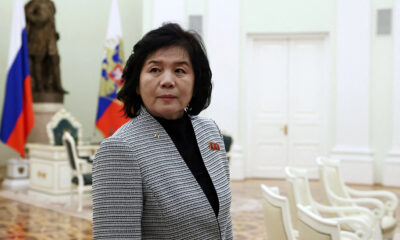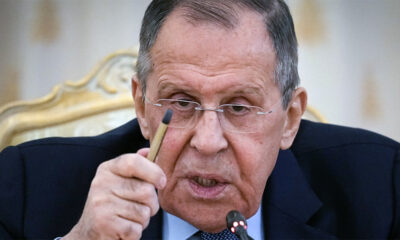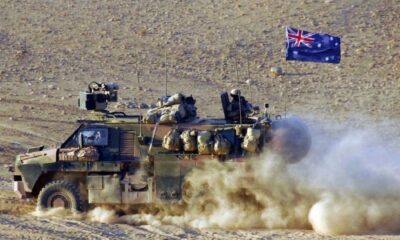Latest News
Full Text of Ariana News’ Exclusive Interview with NATO Secretary General

 NATO Secretary General Jens Stoltenberg, in an exclusive interview with Ariana News in Brussels, elaborated his views on NATO mission and the alliance troop levels in Afghanistan as well as strengthening the capabilities of Afghan national army and security forces.
NATO Secretary General Jens Stoltenberg, in an exclusive interview with Ariana News in Brussels, elaborated his views on NATO mission and the alliance troop levels in Afghanistan as well as strengthening the capabilities of Afghan national army and security forces.
The following is the full text of Ariana News’ exclusive interview with Stoltenberg:
What is the outcome of NATO leaders meeting, especially in Afghanistan?
We agreed on an action plan on fighting terrorism and warm element of that plan is that we will sustain our military mission in Afghanistan. As we know it is not a combat mission anymore but is a train, assist and advise mission and all allies pledged to continue to support the mission and some allies also announced that they are ready to provide more forces. This about training the Afghan national security forces to stabilize Afghanistan and to fight Taliban and terrorism. NATO provides support both with our trainers but also with funding and economic support the Afghan national army and security forces.
About the increase of troops, is there any exact number that how many troops will be deployed to Afghanistan?
We are not in the process of deciding the exact number of troops. Currently, is around 13,000 troops,… so likely within not so many weeks, we have decisions on the exact troop levels. Our military commanders have asked for an increase of a few thousand and that is what we are now looking into, but what is clear, is that we will continue to be in Afghanistan and we are also supporting the roadmap of President Ghani and so we have a more multi-air approach to our presence in Afghanistan, and we have also clearly committed to continue over several years to fund Afghan national army and security forces.
NATO to join Ant-IS Coalition, and as you know IS or Daesh is active in Afghanistan as well, What will be the role of NATO in combat against Daesh in Afghanistan?
What NATO does is that we are training, enabling and supporting the Afghan forces to fight terrorist groups in Afghanistan, so have seen that the Afghan forces are very professional, dedicated and have been able to attack the terrorist groups including ISIS several times and therefore, ISIS has been forced to reduce their presence in Afghanistan, they are controlling less and less or they are present in very small parts of Afghanistan but it is still something we have to take very seriously. That is part of why NATO continue to support the Afghan armed forces and of course the United States is a NATO ally but outside the NATO mission, the United States also conduct counter-terrorism operations in cooperation with the Afghan army.
Afghan air force is still a big shortage, as you know that they are weak and they are not well equipped. Is there any plan for recruiting the Afghan air forces?
Yes, absolutely, one of the reasons why we have decided to sustain our mission and one of the issue stood and that is addressed in what we called it the periodic mission review (the review of our mission), is the importance of strengthening the Afghan air forces and we have some good numbers, we have seen an increase number of air planes, helicopters, and pilots. I met some female pilots Afghan trained in the air force when I visited Afghanistan lost time and NATO will focus on what we can do to further strengthen the Afghan air forces which is a key capacity or capability in the fight against the Taliban and the terrorist groups in Afghanistan. We are also focusing on strengthening further the special operational forces, they have proven extremely valuable and important in Afghanistan, so we are going to help to train and educate more special operational forces that is actually started already and we are also focusing on the leadership, strengthening the military academies to improve command, control and leadership in the Afghan army which includes the fight against terrorism.
There are some reports about corruption, especially in the ANDSF system of Afghanistan, for example ghost police and ghost army. Are you satisfied from the reforms which are underway inside ANDSF in Afghanistan?
It is extremely important to fight corruption and therefore, welcome the very strong commitment by the National Unity Government, by President Ghani and Chief Executive Abdullah to fight corruption and I welcome also the establishment of anti corruption center which will be an important tool to address the big problem of corruption which we have to fight and address. I also welcome for instance the introduction of biometric identification which will help us really to address this problem of ghost soldiers. Corruption is really really negative for the capacity of Afghan army and of course in long-run undermines the willingness of the international community to provide financial support.
Last Question is about the local governors in the north of Afghanistan, who are claiming that Russia is supporting the Taliban, is there any evidence with NATO or what is NATO position here?
I have seen media reports of that kind of support but I haven’t seen any evidence. The important thing now is to focus on the peace process on an Afghan-led and Afghan -owned peace process, and I welcome the initiative by President Ghani to host a meeting in the beginning of June which will be an important contribution to an Afghan-led and Afghan-owned peace process.

Latest News
Afghanistan-Iran-Europe railway corridor activated

The Iranian Embassy in Kabul announced on Thursday that the Afghanistan-Iran-Europe railway corridor has become operational.
In a statement, the embassy said the first export shipment from Afghanistan has started its journey through the Afghanistan-Iran railway corridor to Turkey and Europe.
The corridor was activated with the presence of the Iranian Consul General in Herat and the governor of the province, the statement read.
The statement added that the activation of this corridor, with Iran’s cooperation, will contribute to the improvement of Afghanistan’s economy.
Latest News
Amnesty international urges Pakistan to halt Afghan deportations
Amnesty International said that all Afghan nationals are required to leave the cities of Islamabad and Rawalpindi by 31 March
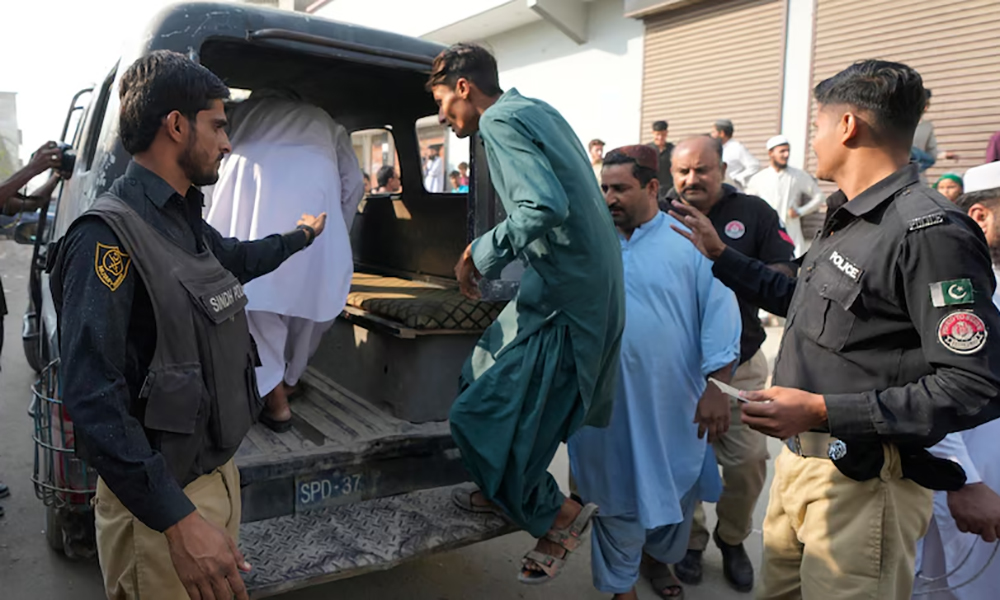
Amnesty International on Wednesday called on Pakistan to immediately withdraw its “Illegal Foreigners Repatriation Plan”, which primarily targets Afghan refugees, ahead of the authorities’ 31 March deadline.
Pakistani government has asked all “illegal foreigners” and Afghan Citizen Card holders to leave the country before March 31, warning they would otherwise be deported from April 1.
Amnesty International said that all Afghan nationals are required to leave the cities of Islamabad and Rawalpindi by 31 March
It said that “arbitrarily and forcibly expelling Afghan nationals, including refugees and asylum seekers, will only add to their plight”.
“The Pakistani government’s unyielding and cruel deadline, which is less than a week away, to remove Afghan refugees and asylum seekers from two major cities, resulting in the deportation of many at risk, shows little respect for international human rights law, particularly the principle of non-refoulement,” said Isabelle Lassée, deputy regional director for South Asia at Amnesty International.
The exact details of the Pakistan government’s ‘Illegal Foreigners Repatriation Plan’ used for deportations has never been made public, but it comes amid a campaign to wrongfully demonize Afghan nationals as so-called criminals and terrorists, Amnesty said.
Isabelle Lassée said that the Pakistani government is only making “a scapegoat of a community that has long been disenfranchised and fleeing persecution.”
Human rights lawyer Moniza Kakar pointed out that forcing Afghan refugees to relocate even within Pakistan is devastating for families. “Many PoR card holders are people who’ve been here for decades, asking them to relocate means you’re asking them to leave homes, businesses, communities and lives they’ve built for years,” she said.
Lawyer Umer Gillani, who has challenged the deportation orders in Pakistan’s Supreme Court and Islamabad High Court, argued that the March 31 deadline was not legally enforceable. “The official notification has not been issued under any particular law; it is just an executive instruction,” he stated.
Meanwhile, the International Organization for Migration (IOM) reported a sharp decline in Afghan returns and deportations during the first half of March. Between March 1 and 15, returns dropped by 67 per cent, while deportations fell by 50 per cent compared to the previous reporting period (February 16-28).
Latest News
IEA leader congratulates Afghans on Eid ul-Fitr
The IEA leader also strongly condemned the Israeli military strikes against the “oppressed and defenseless” Palestinians as a “great injustice and barbarity.”
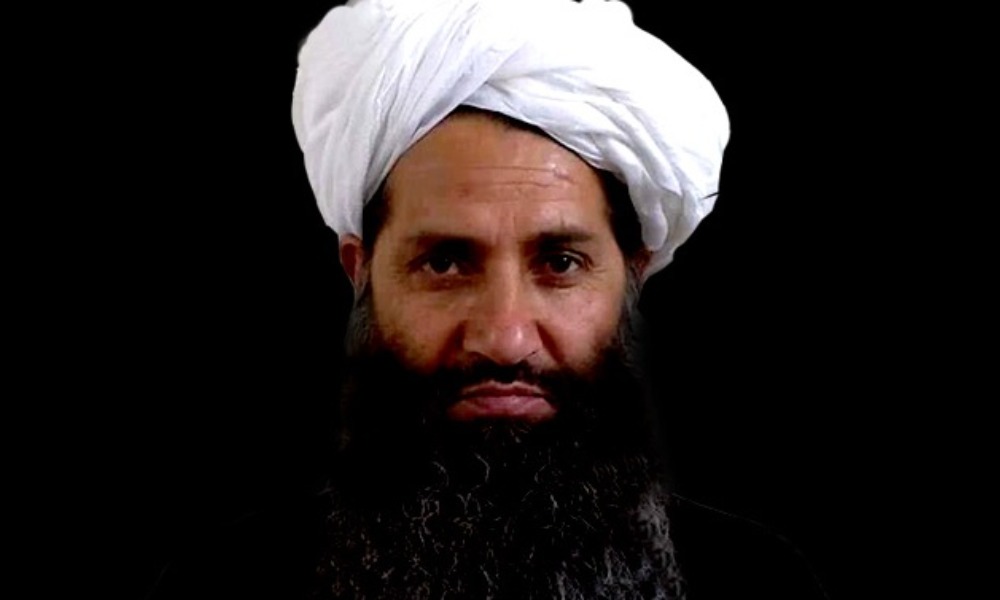
Supreme leader of the Islamic Emirate of Afghanistan (IEA), Mawlawi Hibatullah Akhundzada, congratulated the Afghan people on the occasion of Eid ul-Fitr, calling on them to be strong in their beliefs and not to follow the path of Satan.
In his Eid message, released on Thursday, Mawlawi Hibatullah stated, “Dear Muslim brothers! let us renew our commitment to Allah, the Almighty, and strengthen our resolve to avoid His disobedience and not follow the path of Satan.”
He asked Afghans to thankful to Almighty Allah for security across the country.
“There was a time when on this very day, the funerals of our Afghan brothers were carried out, bombs fell upon us, our homes were searched, and we were dragged into prisons. But now, thanks to Allah, this day has transformed into one of peace and security,” he said.
IEA’s supreme leader reiterated the Islamic Emirate’s resolve to implement Shariah law, instructing courts to ensure judicial rulings adhere strictly to Islamic laws. The message again reiterated that implementing Shariah was a fundamental objective of the Islamic Emirate’s jihad and sacrifices.
On education, Mawlawi Hibatullah said that the educational institutions are tasked with giving serious attention to the correction of beliefs and actions across all educational sectors, aligning their curricula with Sharia, and providing proper training and education to the youth.
Additionally, he cautioned against “harmful propaganda spread by hostile intelligence agencies, who seek to sow despair or create unnecessary concerns about poverty and economic challenges.”
“The Islamic Emirate, with the help of Allah Almighty, is doing all it can to improve your lives.”
Condemnation of Israeli Attacks on Palestine
The IEA leader also strongly condemned the Israeli military strikes against the “oppressed and defenseless” Palestinians as a “great injustice and barbarity.”
“We support the legitimate demands of the Palestinian people and urge the rest of the Islamic world to, as much as possible, support the Palestinians, so they can regain their usurped rights, be freed from the oppression and aggression of the Zionist regime, and put an end to the ongoing atrocities and injustice there,” he said.
-

 International Sports4 days ago
International Sports4 days agoRCB bring fireworks to opening night of IPL 2025
-
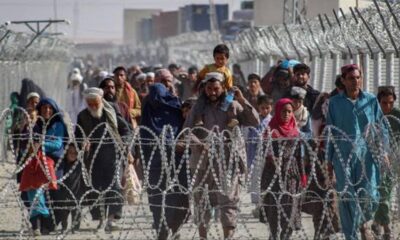
 Latest News4 days ago
Latest News4 days agoTorkham border reopens for pedestrians
-
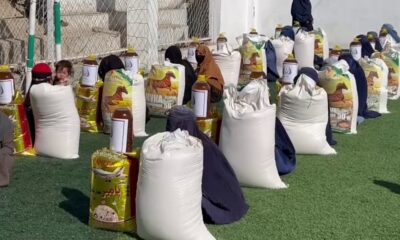
 Latest News4 days ago
Latest News4 days agoBayat Foundation distributes food aid to dozens of needy families in Balkh
-

 International Sports3 days ago
International Sports3 days agoIPL 2025: Sunrisers on a batting rampage; triumph over Rajasthan Royals
-

 Latest News3 days ago
Latest News3 days agoEU says girls’ education crucial for Afghanistan’s long-term prosperity
-
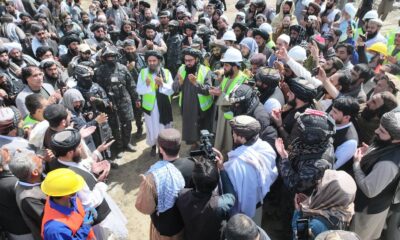
 Business4 days ago
Business4 days agoDeputy PM inaugurates launch of Arghandi Transport Terminal Project in Kabul Province
-
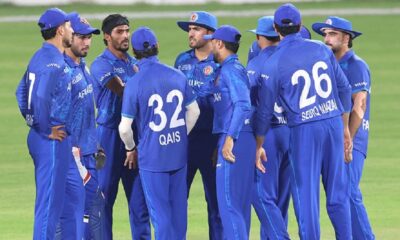
 Sport3 days ago
Sport3 days agoACB names Afghanistan A squad for tri-nation series
-
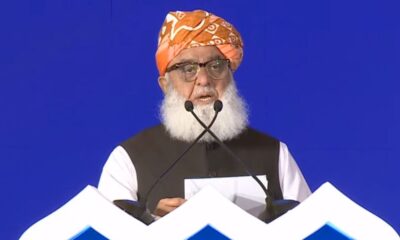
 Latest News4 days ago
Latest News4 days agoPakistan’s mistakes played significant role in rise of terrorism: Maulana Fazl-ur-Rehman



